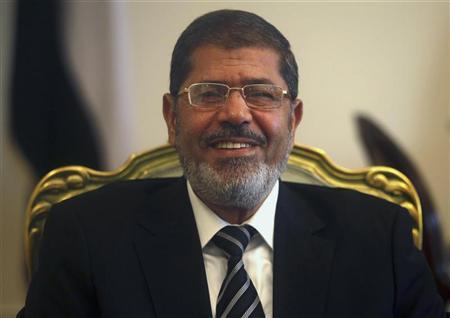
Legal changes are being discussed in order to broaden the powers of governors, President Mohamed Morsy told a meeting of the Board of Governors on Wednesday.
Presidential spokesperson Yasser Ali told Al-Masry Al-Youm Thursday that Morsy said in the meeting that “there is a state of idleness in some government agencies, especially with regard to municipalities.”
Morsy asked governors to take action to improve citizens’ living conditions and bring stability to Egypt, Ali said.
"The president has claimed legislative power to preserve it until Parliament is elected," Ali said, emphasizing that Morsy has only made minimal use of the legislative powers of the presidency.
On Tuesday, Morsy appointed 10 new governors, of whom four are affiliated with the Muslim Brotherhood and three are retired military generals. Five of the 10 are from academia.
While the new appointees are not predominantly Brotherhood members, among them are figures who sympathize with the group. For example, Osama Kamal, who had won his election for Engineers Syndicate deputy secretary by running on the Brotherhood ticket, was appointed governor of Cairo.
The presidential spokesperson also addressed the continued detention of civilians in military prisons. “The issue of amnesty for political activists, who are defendants before military courts, or other [courts], is subject to careful consideration,” Ali said.
Ali explained: “The president cannot grant full amnesty to people who are still under investigation or [are being tried] before the courts, because he cannot interfere in the work of the judiciary.”
A presidential committee tasked with investigating the issue of civilians convicted in military trials between 25 January 2011 and 30 June 2012 has submitted a proposal to Morsy, suggesting a law pardoning anyone convicted in a case related to the revolution, sources within the committee told Al-Masry Al-Youm Wednesday.
Edited translation from Al-Masry Al-Youm




